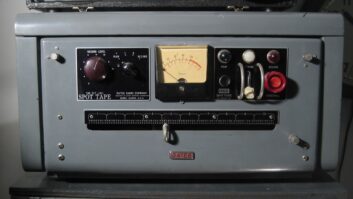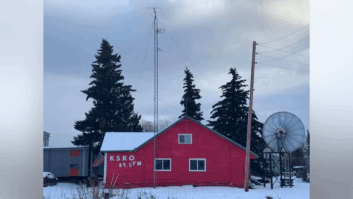The DJB Radio Spider is designed to save hours of work every week by downloading files and sending them to your automation system automatically. According to their web page, Radio Spider “works with almost any brand of radio automation software that supports file imports.”

Since 2011, I have used almost every feature of Radio Spider at one time or another and even managed to find several unreported minor bugs (which were fixed quickly), leaving a stable, great piece of software. In fact, DJB’s Ron Paley even gave us Radio Spider II in 2013 because he wanted me to help beta test it. (I am looking forward to Radio Spider III, which will be able to handle Drop Box, Google Drive, RSS and has more features.)
As you can see in Fig. 1, we use Radio Spider for downloading ABC news, spots and shows from FTP and http websites, as well as from folders that contain individual show downloads.
The original setup requires a bit of a learning curve, but with examples it isn’t too hard to master. The display during setup really helps the process. Plus, DJB customer support is patient and thorough in explaining what I didn’t figure out on my own. Most support is provided by email, but they have called me back when needed — especially for initial setup and installation issues when the OS or computer was replaced. The one thing about email support is you can get answers at any time — I have even got answers on weekends, after hours, etc. but generally by next working day.

As you can see in Fig. 2, setup can be fairly straightforward for FTP downloads.
Some shows download into their own folder using their software. We use Fetcher, Media Shooter Pro and Synchronicity programs provided by networks that automatically download to folders so Radio Spider can then import to automation for us. The folder doesn’t have to be on same computer that Radio Spider is installed on, but we do that as best practice.
Some shows are difficult at best to import (for example, every USRN show we have ever carried). But Radio Spider has a macro for that, as long as folder and content names are not random. The macro display is very detailed.

I have only had to get help a half dozen times over the last four years, and Fig. 3 shows one of those times. I got most of it right without help, but had to get some support. Then USRN started putting random version numbers in folder name and that necessitated help from a Scripting expert (more on that later).
The only thing Radio Spider can’t do that I needed was handle random data in folder path name — because you can’t use wild characters to find a folder, which is a design flaw in the way Microsoft handles folders.
I have a script in text form that was custom written by the late Kevin Watkins, which handles that issue on a case-by-case instance. It removes random version numbers in the path by renaming the folder to what it would be without random revision numbers and overwriting older versions that had been so renamed also so Radio Spider can then do what it does. Watkins gave me permission to share it with everyone. It’s available at radiomagonline.com/spiderscript.
Anyone with experience in scripts should be able to modify it for their own use. I have done so several times now, although I have to look up everything on internet. “Modifying” is the only scripting I have done.

Later, USRN even started putting the word “revised” in some folder names with random version numbers, too. The script Watkins provided has two sections: One for removing random revision numbers in the regular version; and a second to remove random version in the versions with “revised” in the folder name.
Radio Spider has been one of the best software investments we have made to make importing reliable. It even offers email alerting (see Fig. 4). Part-time talent isn’t wasted on time consuming chores when you make use of Radio Spider.
Simpson is the chief engineer/IT operations lead for Jonesboro Radio Group.







